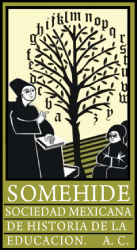Informal education, historical consciousness and social movements
DOI:
https://doi.org/10.29351/amhe.v3i1.431Keywords:
Informal education, historical consciousness, social movements, critical pedagogyAbstract
Social movements have a special value as informal education. You can see how they educate the people who participate in them and how they affect public opinion. They are a new component within participatory democracy, which try to address their message to society –sometimes through controversy and using criticism– mediate reflection on the reality that surrounds us. This paper analyzes the contributions of social movements in informal education, using Paulo Freire’s critical pedagogy as an interpretation tool and trying to answer the question of whether it is possible –through these movements– to achieve social change. Likewise, the work tests the reflections presented in other studies such as the one that precedes this one and that dealt with the social movements of 1968 in Mexico and Poland; and the repercussions they had on the historical consciousness of the societies of that time. The main thrust of this paper is the events that occurred in Chihuahua on March 8, 2022, International Women’s Day, because they achieved a broad participation of university students and sought the influence of past social movements as a triggering factor. The methodology was based on the review of secondary sources to support the hypothesis about informal education as a factor of change in society and –given the extension requirements in the call for the publication– the review is reduced to the texts considered indispensable by the researchers and the use of interviews with some participants.
References
Alondra (2022, abr.). Entrevista realizada por Izabela Tkocz. Chihuahua, México.
Cataño Balseiro, C. L. (2011). Jörn Rüsen y la conciencia histórica. Historia y Sociedad, (21), 223-245. http://www.scielo.org.co/scielo.php?script=sci_arttext&pid=S0121-84172011000200010&lng=en&tlng=es
Cho, S. (2010). Politics of critical pedagogy and new social movements. Educational Philosophy and Theory, 42(3), 310-325. https://doi.org/10.1111/j.1469-5812.2008.00415.x
Eyerman, R., y Jamison, A. (1991). Social movements: A cognitive approach. The Pennsylvania State University.
Freire, P. (1998). Pedagogy of freedom. Ethics, democracy and civic courage. Rowman and Littlefield.
Jaime (2022, abr.). Entrevista realizada por Izabela Tkocz. Chihuahua, México.
Janion, M. (1972). Romantyzm, rewolucja, marksizm [Colloquia gdañskie]. Wydawnictwo Morskie.
Luly (2022, abr.). Entrevista realizada por Izabela Tkocz. Chihuahua, México.
María José (2022, abr.). Entrevista realizada por Izabela Tkocz. Chihuahua, México.
Martha (2022, abr.). Entrevista realizada por Izabela Tkocz. Chihuahua, México.
Mayo, P. (2006). Synthesizing Gramsci and Freire: Possibilities for the theory of radical adult education. International Journal of Lifelong Education, 13(2), 125-148. https://doi.org/10.1080/0260137940130204
Niesz, T., Korora, A. M., Walkuski, C. B., y Foot, R. E. (2018). Social movements and educational research: Toward a united field of scholarship. Teachers College Record, 120(3), 1-41. https://doi.org/10.1177/016146811812000305
Pérez Piñón, F. A. (2019). Editorial: Representación, escritura y conciencia histórica. Debates por la Historia, 7(2), 7-17. https://doi.org/10.54167/debates-por-la-historia.v7i2.405
RAE [Real Academia Española] (2022). Fifí. Diccionario de la lengua española. https://dle.rae.es/fif%C3%AD
Tkocz, I., y Trujillo Holguín, J. A. (2020). Movimientos estudiantiles en Polonia y México de 1968: un estudio comparativo. Izquierdas, (49), 1198-1214. https://www.scielo.cl/pdf/izquierdas/v49/0718-5049-izquierdas-49-63.pdf
Downloads
Published
How to Cite
Issue
Section
License
Todos los contenidos del Anuario Mexicano de Historia de la Educación se publican bajo una licencia Creative Commons Atribución No Comercial 4.0 Internacional (CC BY-NC 4.0), que permite compartir (copiar y redistribuir el material en cualquier medio o formato) y adaptar (remezclar, transformar y construir a partir del material) para fines no comerciales, dando los créditos a los autores y a la revista, tal como lo establece la licencia.
La política de acceso abierto y de licencias con “algunos derechos reservados” no niega la propiedad intelectual ni los derechos de los autores respecto a sus artículos, pues ellos son los titulares, en tanto que el Anuario Mexicano de Historia de la Educación no los reserva para sí ni para la institución editora, ya que se apegan a movimientos de acceso abierto como los Principios y Valores del Sistema de Información Científica Redalyc - Red de Revistas Científicas de América Latina y el Caribe, que pugnan por la eliminación de las políticas de embargo para que el autor retenga los derechos de su obra (principio número 8). Así como las políticas de acceso abierto del Directory of Open Access Journals (DOAJ).
Los autores podrán distribuir su propio material en cualquier otro medio o soporte, siempre y cuando sea para fines no comerciales, informando a los editores que el trabajo será publicado nuevamente y dando el crédito correspondiente al Anuario Mexicano de Historia de la Educación.
La publicación en el Anuario Mexicano de Historia de la Educación, por su carácter gratuito, no da derecho a remuneración económica alguna a los autores, ni a los dictaminadores.
Los lectores podrán reproducir (copiar), comunicar, distribuir o hacer obras derivadas de los artículos o colaboraciones publicados en el Anuario Mexicano de Historia de la Educación en los siguientes casos:
- Para fines públicos.
- Sin fines comerciales.
- Que se reconozca la autoría de la obra y se cite su origen con información completa: Apellido/s del autor, inicial/es del nombre/s. (año de publicación). Título del artículo. Nombre de la revista, volumen (número de ejemplar), página inicial del artículo-página final del artículo. DOI o URL (formato sugerido de acuerdo al estilo APA en su versión más reciente).
El cuerpo editorial del Anuario Mexicano de Historia de la Educación asumirá el compromiso de notificar oportunamente a los autores sobre cualquier cambio de ubicación de los artículos en el sitio (cambio de dirección URL o de conexiones para identificar el artículo).
Los autores, al enviar sus trabajos para su posible publicación, deberán tomar en cuenta los puntos anteriores, mismos que se contemplan en el Acuerdo entre autor y el Anuario Mexicano de Historia de la Educación.











